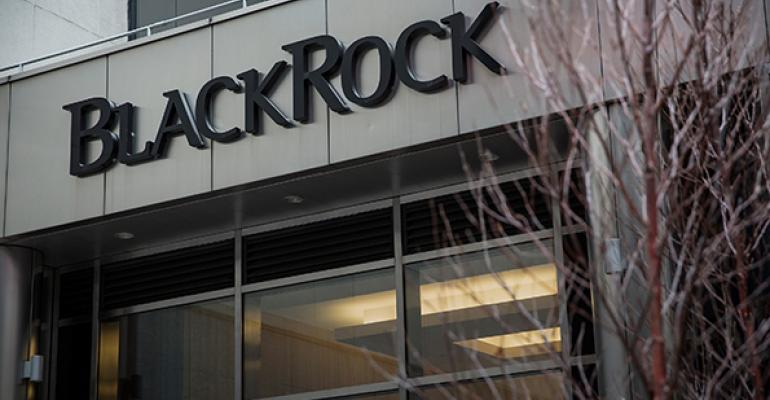(Bloomberg) -- Amid Friday’s rout in the financial markets following Britain’s vote to leave the EU, one exchange-traded fund was having a pretty good time.
Investors directed $291 million into BlackRock Inc.’s high-yield bond ETF on June 24, more than any of the investment giant’s other ETFs, data compiled by Bloomberg show. That lifted weekly inflows for the junk-bond fund to a record $1.5 billion, as the deteriorating outlook for interest-rate increases boosted the appeal of higher yielding securities.
Britain’s referendum came just eight days after the U.S. Federal Reserve reduced its expectations for higher interest rates, and in the face of continued speculation surrounding the U.S. presidential contest in November. That increased trading in exchange-traded funds, as the products accounted for almost a third of the day’s $571 billion in trading in U.S. stock markets, Deutsche Bank AG’s Sebastian Mercado wrote in a client note.
“A lot of it is yield-seeking investors,” said Karen Schenone, a San Francisco-based fixed-income strategist at BlackRock Inc.’s iShares unit. “The Fed hike has been completely priced out for 2016.”
Chasing Yield
Interest in junk debt lasted into this week, with more than $2 billion of shares in BlackRock’s high-yield fund changing hands on Monday, data compiled by Bloomberg show. The share price rose 1.3 percent on Tuesday after dropping 3 percent following the Brexit vote.
Investors have slashed the likelihood of an increase in U.S. rates by year-end to around 10 percent since Brexit, down from 50 percent on the day of the vote. Investors had already pushed out their expectations for a rate hike after the Fed met June 14-15.
“You see a lot of people chasing yield,” said Will Wall, head trader at RiverFront Investment Group LLC in Richmond, Virginia, which manages about $5.5 billion. “If we continue to see the sell-off in equities, we would probably position more money in the fixed-income space, whether that be Treasuries or high yield.”
ETFs can also provide a tool to sidestep liquidity disruptions for individual debt securities. Brokers have purportedly used them to stockpile riskier bonds, and about 70 percent of investors in bond ETFs value them for their liquidity and ease of use, according to a report by Greenwich Associates. That said, some investors, including Oaktree Capital Group LLC’s Howard Marks, have warned that fund buyers may be overestimating how easy it is to exit these products.
Bond ETFs are likely to benefit further over the next few weeks as volatility continues and investors keep an eye on the presidential election, according to Adam Patti, chief executive officer of IndexIQ, New York Life Insurance Co.’s exchange-traded-fund unit.
“When there’s more certainty around rate hikes, or a lack thereof, people are more willing to get into fixed-income generally, and then on top of that, it’s the flight to safety,” said Patti. “It’s sinking in that we might be in for a lot of uncertainty over the coming months and maybe years.”
--With assistance from Eric Balchunas. To contact the reporter on this story: Rachel Evans in New York at [email protected] To contact the editors responsible for this story: Nabila Ahmed at [email protected] Eric J. Weiner, Dan Wilchins





